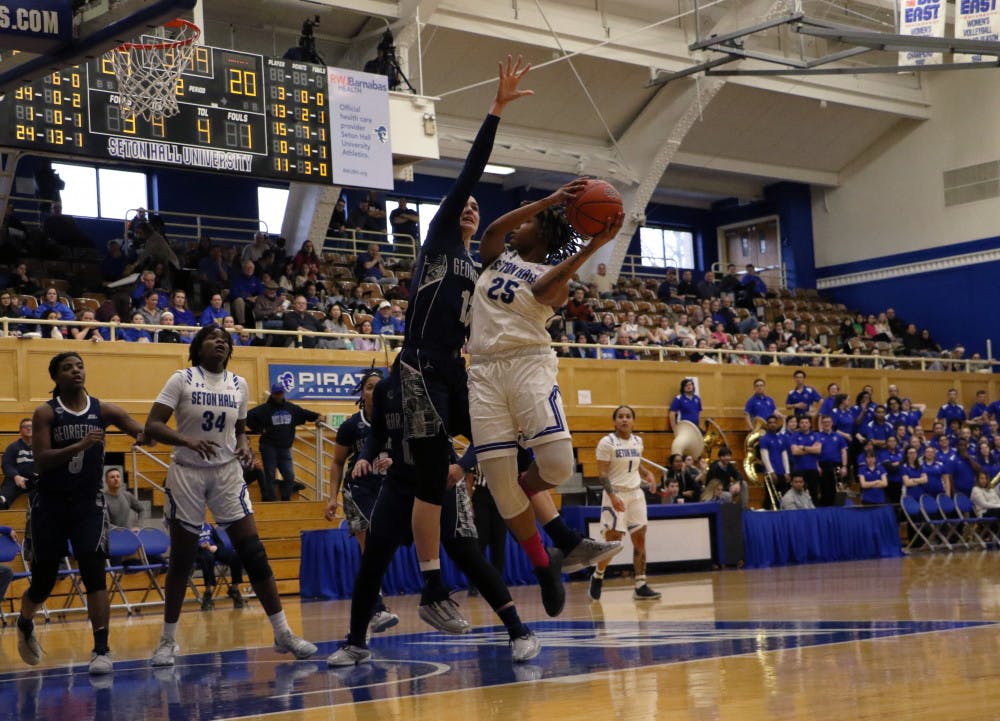This won't be the first column or news article discussing the Pirates' weak non-conference schedule.
As far as I'm concerned, each take on the issue is justified because, come March, it could certainly play a major role in sending this talented men's basketball program to the NIT instead of the NCAA Tournament.
RealTimeRPI.com posted Seton Hall's strength of schedule at 218th in the country, as of press time. Despite standing 7-0 on the season, the only real test for the team came at Cornell, still not a major conference school.
So the until Dec. 26 meeting with West Virginia, one of the Big East's best, there isn't much else to test this Pirates team in preparation for conference play.
Most who defend the weak schedule make one of two claims: that it doesn't matter what Seton Hall does in the non-conference schedule because they play in the mighty Big East or that no one wants to set up a contract with the Pirates for a home-and-home series.
Regarding the first claim, it simply is contrary to most recent comments, interviews or remarks by NCAA Tournament selection committee members and coaches.
Last year's NCAA Tournament selection committee chair Mike Slive (the SEC commissioner) told ESPN's Andy Katz via e-mail in March, "The whole season is important. November and December are not exhibition games – it's part of the body of work."
Slive added, "The message is the same to all of the teams, and that is they need to schedule in a way so that they can differentiate between the quality of competition, specifically in the nonconference portion of the schedule."
Maryland coach Gary Williams, also interviewed for the ESPN article, seemed to agree.
"The one thing that the NCAA made clear to the coaches is that we're not going to judge you on which league you play in, whether it's the ACC or the Big Ten," Williams said.
Meanwhile, the argument that Seton Hall is a program that is getting unfairly avoided by fellow power conference schools doesn't hold much stock for me, either.
Consider several Big East programs, some projected to finish ahead of the Hall and others chosen to place below them, and you'll see plenty of compelling basketball before New Year's.
Villanova has already taken on Dayton, a ranked team at the time, and Maryland.
Providence went to both Alabama and George Washington, teams with at least six wins each at press time.
DePaul battled against current No. 9 Tennessee, a six-win Northern Iowa team and played at current No. 24 Vanderbilt.
Even Rutgers faced current No. 11 Florida in late November and has a trip to Chapel Hill for a meeting with one of the nation's best, North Carolina, on Dec. 28.
St. John's opted to meet Duke, ranked No. 5 at the time, and only lost by nine points on Saturday in Durham.
The examples speak for themselves. Scheduling tough teams can be done, and Seton Hall has plenty to boast in doing so. It plays in a state-of-the-art facility at Prudential Center only minutes from New York City.
My gut feeling is that plenty of NCAA coaches would be willing to come to the metropolitan area for a game and perhaps some recruiting in the hotbed that is New York City high school basketball during the early months of the season.
The Pirates need to take a lesson from their conference-mates. Even if the Hall pulls off some major Big East upsets this year, it may find itself in the NIT – playing weaker non-power conference schools that it has grown accustomed to the past seven games.
Brian Wisowaty can be reached at brian.wisowaty@student.shu.edu.





